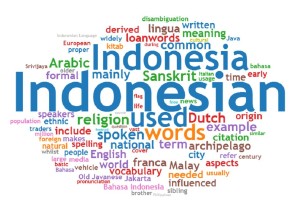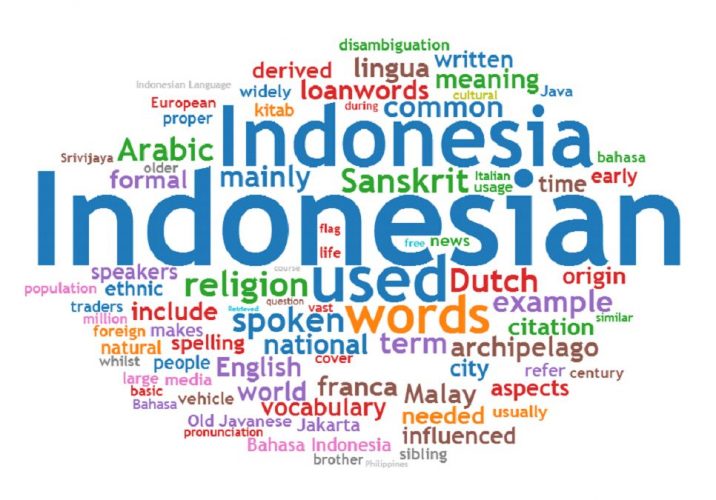By Sarah-Claire Jordan
 Indonesian, also known as Bahasa Indonesia, is an Austronesian language, specifically part of the Malayo-Polynesian family. It is the official language of Indonesia, but is spoken in Australia, Singapore, the U.S., and other countries. Indonesian is actually a standardized form of Malay that has been used for centuries by the people living on the different islands that make up Indonesia. Most Indonesians also speak a regional language, as well as English.
Indonesian, also known as Bahasa Indonesia, is an Austronesian language, specifically part of the Malayo-Polynesian family. It is the official language of Indonesia, but is spoken in Australia, Singapore, the U.S., and other countries. Indonesian is actually a standardized form of Malay that has been used for centuries by the people living on the different islands that make up Indonesia. Most Indonesians also speak a regional language, as well as English.
The Indonesian-speaking market is a huge one for businesses to latch onto if they can, especially in terms of online marketing and social media. Indonesian speakers are huge Internet users and make up a good portion of non-English speakers who have a weighty online presence. How can businesses get to this newly-discovered target market that continues to expand? By translating and localizing content for Indonesia.
There are a few things about Indonesian that make it trickier than other languages to translate into from English. First of all, there are at least 20 different ways to say “you” in Indonesian. This is something that we don’t have in English at all, as we have just one way to say “you”, but anyone who knows a Romance language or even another Germanic one knows that there are sometimes two or three different ways to say “you” depending on their status and other factors.
Something else that might come up in English-to-Indonesian translation is the number of numeral classifiers that are used in Indonesian. These do exist in English, too, like when we say “twenty head of cattle”, but are far more common and complex in Indonesian. For example, there is a numeral classifier used for pens, chalk, and rivers, one for hairs and pieces of paper, and one for letters and guns. The semantic categories used here don’t seem to make sense, but they do for native Indonesian speakers.
Certain concepts don’t translate well into Indonesian. These include “feathers,” “adventure,” and even “exciting”. To talk about feathers, for instance, in Indonesian, the phrase used translates to “bird coat” or “bird covering”. Adventure is something that is apparently much more rooted to culture than other terms.
In English, we have a history that goes back to romantic tales of knights going on quests in foreign lands and claiming them for the crown. This has never happened in Indonesia, and so that wistful idea of adventure simply doesn’t exist. Adventure for Indonesian speakers has to do with dangerous risks, and people are not encouraged to go out in search of those.
There are more issues that English-to-Indonesian translators will have to grapple with throughout the course of their careers, but these are a few that are worth mentioning. Anyone who does end up working on a project destined for the Indonesian market will see that cultural differences will come into play as well, and often linked very closely to linguistic differences. As with any project, working with a seasoned and professional translator is the best way to go so as to avoid any confusion, or worse, unintentionally offensive statements.




